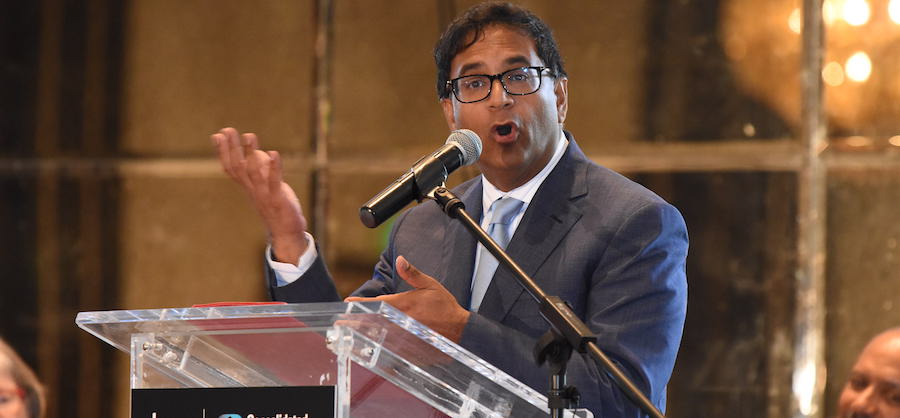Could a universal basic income (UBI) for Barbadians be the next big thing during the upcoming general election? It seems to have excited the Democratic Labour Party (DLP) as it is forming the basis of recent discussions.
Moreover, the idea of a UBI caused a key advisor to the current administration to pen a lengthy position on the matter, as he queried why there had been no invitation extended to one of Government’s finance officials to join a panel discussion on the matter which featured opposition voices as well as University of the West Indies Cave Hill Campus Professor Justin Robinson.
In his online missive, Professor Avinash Persaud, Special Envoy on Investment and Financial Services to Prime Minister Mottley floated the suggestion that a UBI could come in the creative form he termed a “citizen’s dividend”.
Persaud, who has produced several important position documents on how to achieve many of the administration’s strategic financial goals, argues that a “citizen’s dividend may be combined with the annual reverse tax credit to form some kind of universal basic income”.
In his contention, the Barbados version of a UBI would be a unique build out of the reverse tax credit, which was introduced by late prime minister Owen Arthur.
“The idea is that some of the income produced every year would be given back to all citizens over the age of 18, perhaps in the form of a citizen’s dividend. Over time the citizen’s dividend and reverse tax credit could form the basis of a universal basic income and create a greater sense of belonging to all our people. We welcome other practical, effective ideas on how to achieve this goal quicker,” Mr Persaud outlined.
Suggesting that the Arthur-inspired reverse tax credit was now “the envy of many developed countries” Professor Persaud crafted his UBI case on the tax credit which provides those who work for less than $25 000 annually, and file for the payment with the Barbados Revenue Authority (BRA) a $1 300 cheque once a year.
But Dr Ronnie Yearwood, who holds a PhD in International economic law and lectures at the UWI Law Faculty, rejects Professor Persaud’s version of a UBI.
For Dr Yearwood, the idea of aligning a reverse tax credit with a UBI was to do an injustice to the concept. Yearwood, who also has ambitions of becoming a Member of Parliament, is seeking to unseat first-timer and incumbent in St James South, Sandra Husbands.
He makes the strong argument that the bureaucracy associated with filing for a reverse tax credit with the BRA defeats the cause for a UBI.
And unless Government is prepared to make 12 monthly reverse tax credit payments to all eligible Barbadians, it would be a no-go to ask particularly desperate, underemployed and unemployed people to wait on an annual payment which is contingent on the workload of the BRA and the availability of funds from the Ministry of Finance.
Professor Robinson, who has also served on the board of the Central Bank of Barbados for some years, has also raised another important consideration.
He spoke to the need to convince the public, particularly overtaxed members of Barbados’ large middle-class, that Government is not going to use the UBI as a way of putting money in the hands of those who would rather not work but depend on the state.
A schoolteacher, fireman, police officer, sales executive, or information technology specialist, would certainly feel hard-done to know that after the first $25 000 of income, he pays a high rate of tax, while a man at home operating in the informal economy, not paying his fair share of taxes, would also benefit from a state-funded income.
The UBI could be a double-sided sword that could cut both ways, especially in the highly politicised environment of a looming general election.
UBIs are great poverty alleviation mechanisms. They result in lifting everyone’s income above the poverty line and discourages low wages because employers know workers have another option from the state to which they can turn.
In addition, unpaid workers such as housewives and other care workers get added income security and independence from UBIs.
The big disadvantage of most UBI systems is that those who do not need them will also benefit. For us in Barbados, it compares to free education and healthcare, as even those who can afford to pay still get to benefit.
So, unless Government is fully prepared to provide the substantial funding necessary for the sustainability of such a programme, it should not tease an anxious public and hungry electorate with such an ambitious and audacious policy.




